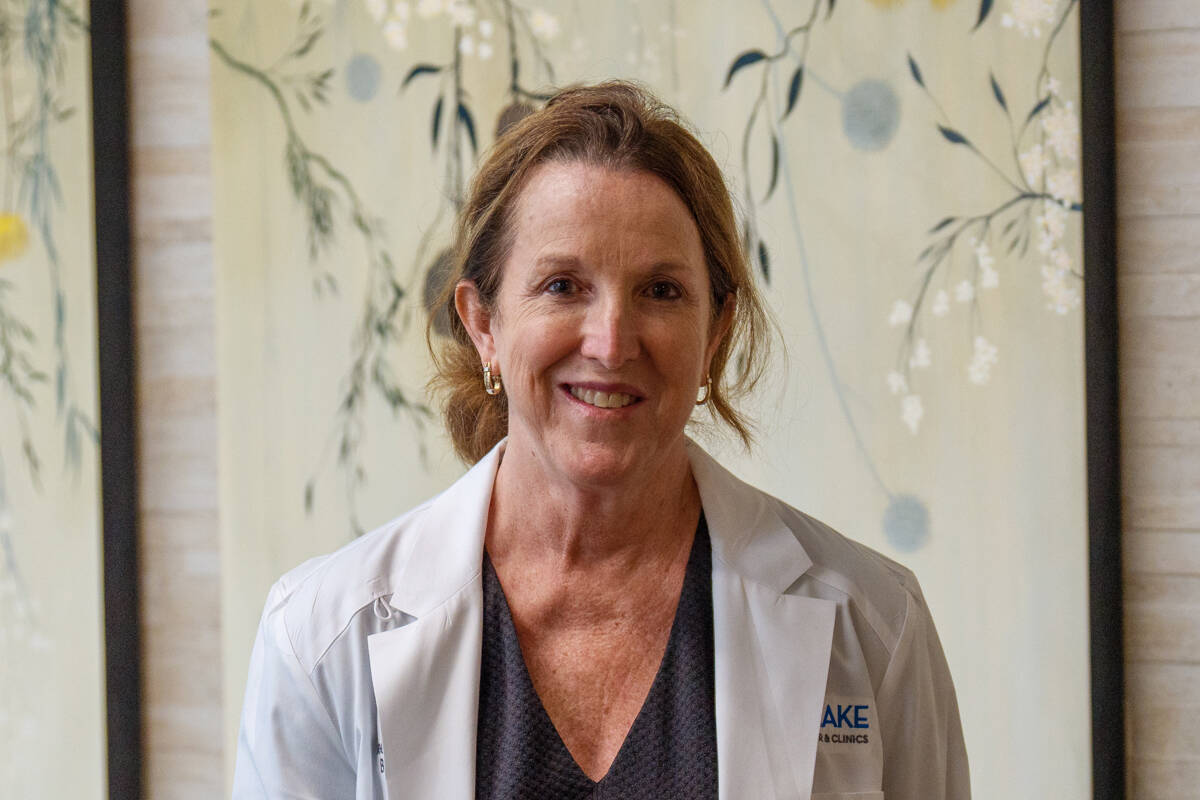Overlake Medical Center’s multidisciplinary clinic offers convenience, clarity to Washington breast cancer patients.
Receiving a breast cancer diagnosis is devastating enough. Unfortunately, many patients also find the treatment and recovery process overwhelming, exhausting and hard to understand. Overlake Medical Center’s new multidisciplinary cancer clinic offers a better way.
“I’ve heard stories of patients who left their oncologist’s office unsure what their treatment plan will be. When women leave our clinic after their initial visit, they have a clear understanding of their treatment schedule for the next three to five months,” says Eileen T. Consorti, MD, MS, a surgical oncologist and medical director of the Overlake Cancer Center.
The Overlake Cancer Center recently launched a pilot program offering breast cancer-specific care in a multidisciplinary environment.
“Having all of the practitioners in one place, alongside the patient, means communication is really clear — both between practitioners and with the patient,” Dr. Consorti says.
Cancer screening saves lives
The first step to quality cancer care is regular screening — catching cancer early is your best chance at a long and healthy life. When it comes to breast cancer screening, Dr. Consorti has three pieces of advice:
1. Schedule annual breast cancer screening after age 40
“Guidelines have varied slightly in recent decades, but the evidence is clear — annual mammograms help us detect breast cancer in earlier stages when it’s easier to treat,” Dr. Consorti says.
A recent study found that women diagnosed with breast cancer after having yearly mammograms were diagnosed with cancers that were smaller and less advanced than women who had mammograms every two years. Among those diagnosed with cancer, 24 percent of women who had yearly mammograms were diagnosed with stage II, III or IV breast cancer. That number jumped to 44 percent among women who had mammograms every two years — so testing more frequently increases your chances of catching cancer at an earlier stage.
2. Talk to your family to understand your cancer risks
Depending on your family history, you may benefit from starting breast cancer screening before age 40 or conducting more frequent screening.
“Many of us know some of our family history, but we don’t have the complete picture. Sometimes people prefer to keep a cancer diagnosis private, or forget to share history from an aunt or grandmother,” Dr. Consorti says. Overlake Cancer Center offers genetic counseling to understand and manage your risk.
3. Don’t hesitate
Mammograms are more comfortable than they used to be, thanks to the introduction of curved paddles.
“The breast is only compressed for two to three minutes — faster than most women anticipate,” Dr. Consorti explains.
Some people also hesitate because they’re concerned about radiation exposure from testing, but the radiation exposure from a mammogram is very low. It’s equal to the background radiation we are all exposed to in seven weeks of normal everyday life.
Multidisciplinary cancer clinic
When a patient receives a new diagnosis of breast cancer, an Overlake nurse navigator will reach out to schedule a clinic visit, collect the necessary test results and help the patient through the entire care process.
On clinic day, patients receive treatment from a team of physicians working together on their care. Here you may see a radiation oncologist, medical oncologist and surgical oncologist, as well as counselors, experts and other physicians — all without leaving the clinic.
“We invite patients to bring a loved one along to take notes and offer support and take steps to ensure they are comfortable throughout their visit,” Dr. Consorti says.
Support continues throughout treatment, and may include genetic counseling, massage therapy, fertility specialists, financial counseling, social workers and other specialists.
“We go over all issues that may arise, including a survivorship plan for after treatment. Patients may not always know which questions to ask, but when we raise these topics they often feel more comfortable requesting a referral.”
Overlake Medical Center & Clinics is a nonprofit regional healthcare system based in Bellevue serving the Eastside community since 1960. Find the Overlake Cancer Center at 1135 116th Ave NE, Suite 200, in Bellevue. Learn more about the multidisciplinary breast cancer clinic at overlakehospital.org/services/cancer-care/breast-cancer or call 425-635-3400.


